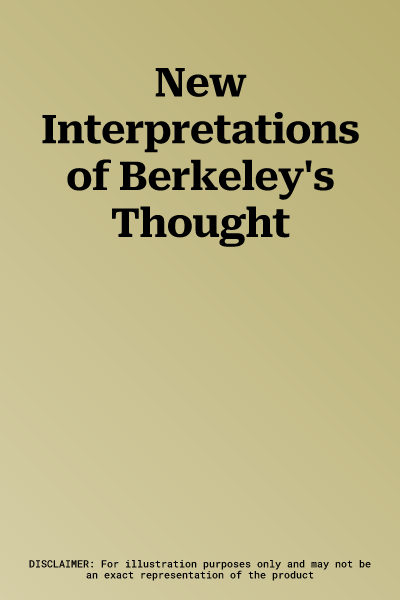In this set of previously unpublished essays, noted scholars from North
America and Europe describe how the Irish philosopher George Berkeley
(1684-1753) continues to inspire debates about his views on knowledge,
reality, God, freedom, mathematics, and religion. Here discussions about
Berkeley's account of physical objects, minds, and God's role in human
experience are resolved within explicitly ethical and theological
contexts. This collection uses debates about Berkeley's immaterialism
and theory of ideas to open up a discussion of how divine activity and
human experience are reconciled in a recurring appeal to the laws of
nature. In that context, objects in the world are linked to one another
by means of the perceptions and affections whereby minds come into
being. The laws of nature thus become crucial for Berkeley in revealing
how objects are unintelligible apart from being apprehended by minds
that are themselves connected to one another in virtue of their ideas.
Overall, the essays indicate that, for Berkeley, our apprehension of the
world as real depends on recognizing how the world expressed by our
ideas is not a mere aggregate of disconnected bodies but is rather an
integrated unity of the things we experience. This provides an antidote
against the loss of unity created by Descartes' isolation of the self
from nature and Locke's account of objects in terms of simple, discrete
ideas.
In juxtaposing discussions of Berkeley's later writings with his earlier
works, this volume shows not only how, for Berkeley, mind is
intrinsically linked to things in nature as the principle of their
determination in law-governed ways, but also how minds are practically
related to the objects of the physical world, one another, and
ultimately God.

